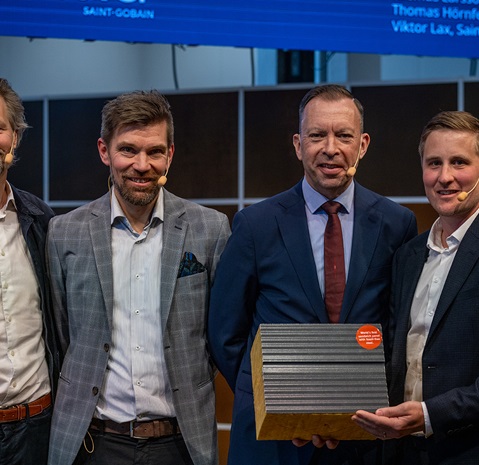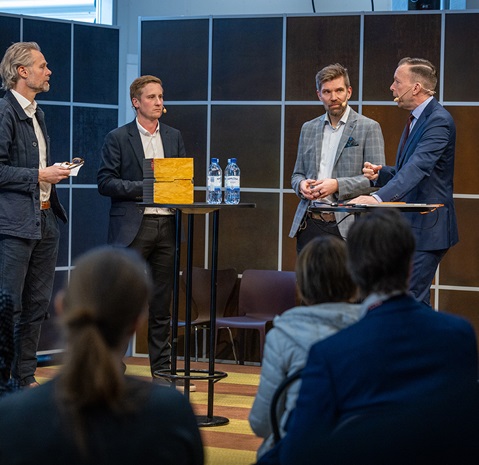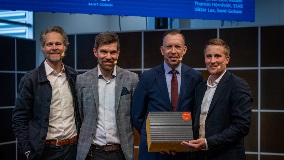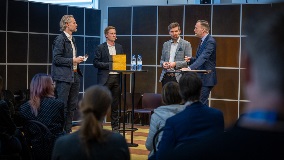The well-attended seminar at Nordbygg 2024 revolved around extensive collaboration to offer sustainable building products. This collaboration has been ongoing for more than a decade and is now more relevant than ever. The discussion highlighted Ruukki® Life panels, , which enable a fully circularity product using emission-free recycled steel from SSAB and glass wool made from over 70 percent recycled glass.
"The construction industry is a traditional sector that uses conventional materials. But with this product, we have shown how we can break old patterns and processes to drive the necessary development towards more sustainable construction," says Rasmus Larsson, Portfolio & Sustainability Manager, Ruukki Scandinavia.
According to Viktor Lax, Offer & Innovation Director Mortars, Saint-Gobain Nordic & Baltic, Isover’s glass wool has several environmental benefits.
"Our glass wool is made from at least 70 percent recycled glass. It has excellent insulation properties, leading to lower energy consumption, effectively attenuates noise, and has high fire safety. It also requires no maintenance and serves its purpose throughout the building's lifespan. The glass wool is produced with fossil-free electricity and manufactured locally, ensuring full lifecycle control," he explains.
"Together with Ruukki, with whom we have a long-standing partnership, we saw an opportunity to further develop glass wool insulation to meet the stringent requirements for a sandwich panel for exterior walls," he adds.
Boosting customer competitiveness
Ruukki® Life panels can now be produced with recycled steel from SSAB, made in electric arc furnaces using recycled steel scrap as the raw material. The production process itself is powered by fossil-free electricity and biogas. The result is steel that has virtually zero emissions.
"There is a great demand for this type of product. This project is an excellent example of how we can create demand by collaborating with the entire value chain," comments Rasmus Larsson.
"Set bold goals"
All three agreed that clarity and transparency are essential parameters for establishing credibility for their products. When asked what they had learned from the process and how they would continue to drive the development towards increased sustainability in the industry, Thomas Hörnfeldt emphasized the importance of "setting bold goals."
"We set the goal as early as 2016 to be the first to produce fossil-free steel. This has served as a tremendous driving force within the company and has also made us very attractive as an employer. It creates pride among employees," he says.
Both Viktor Lax and Rasmus Larsson highlighted collaboration as being key to continued success in the field. Given that 20 percent of all total emissions in Sweden come from the construction industry, the development of new products must be accelerated to meet the Paris Agreement goal of halving all emissions by 2030.
"No one will solve the challenges facing the construction industry on their own. We must be open to collaboration," says Viktor Lax.


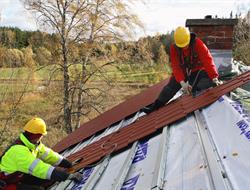

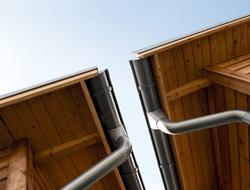






.tmb-250x190.jpg?sfvrsn=607438b5_1)






